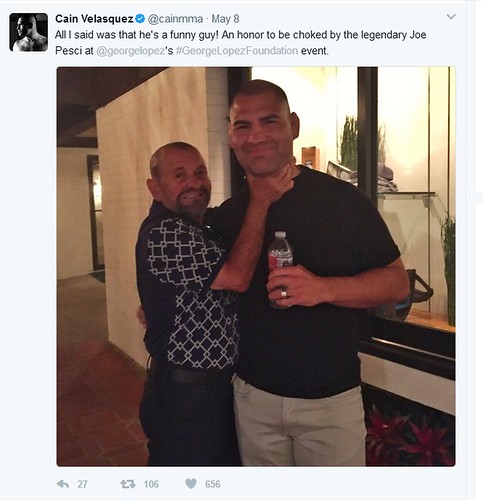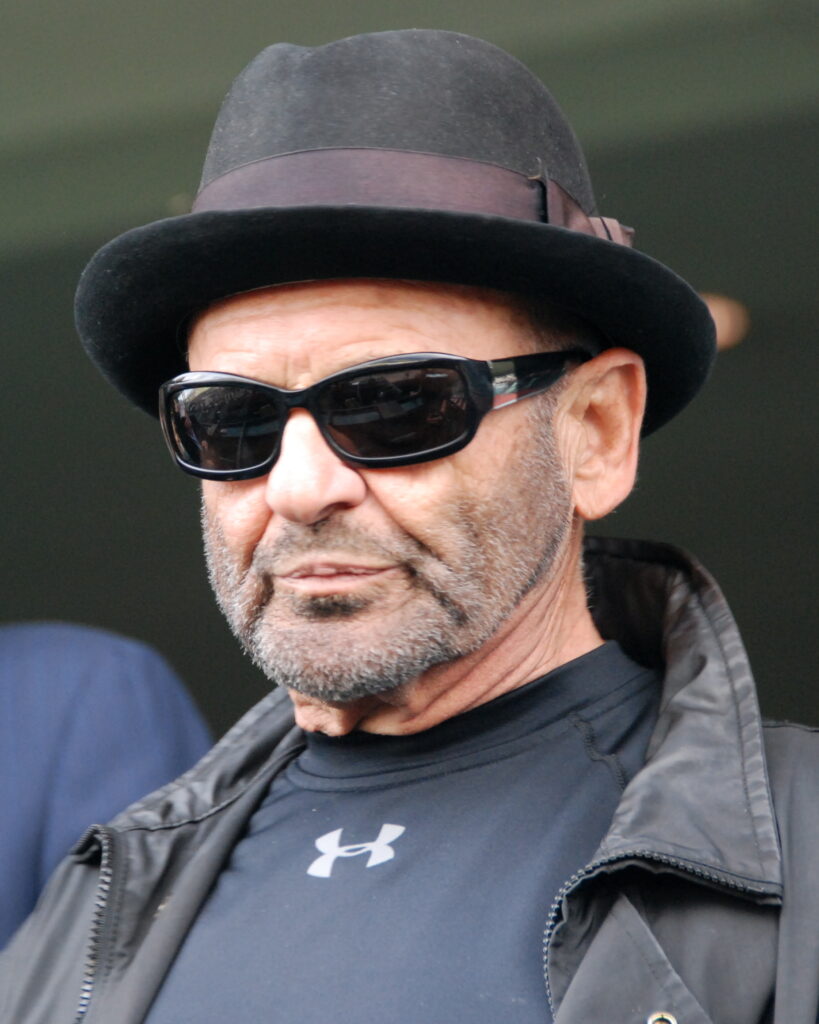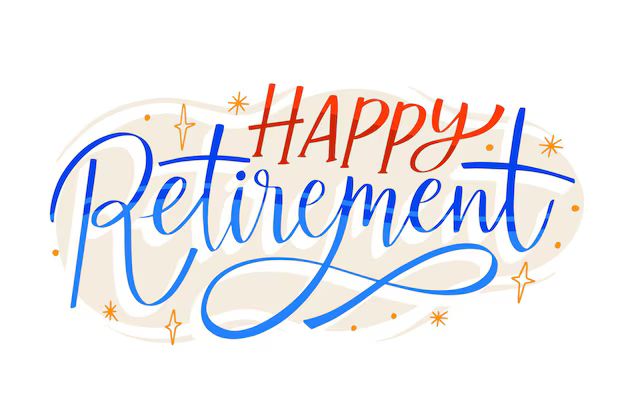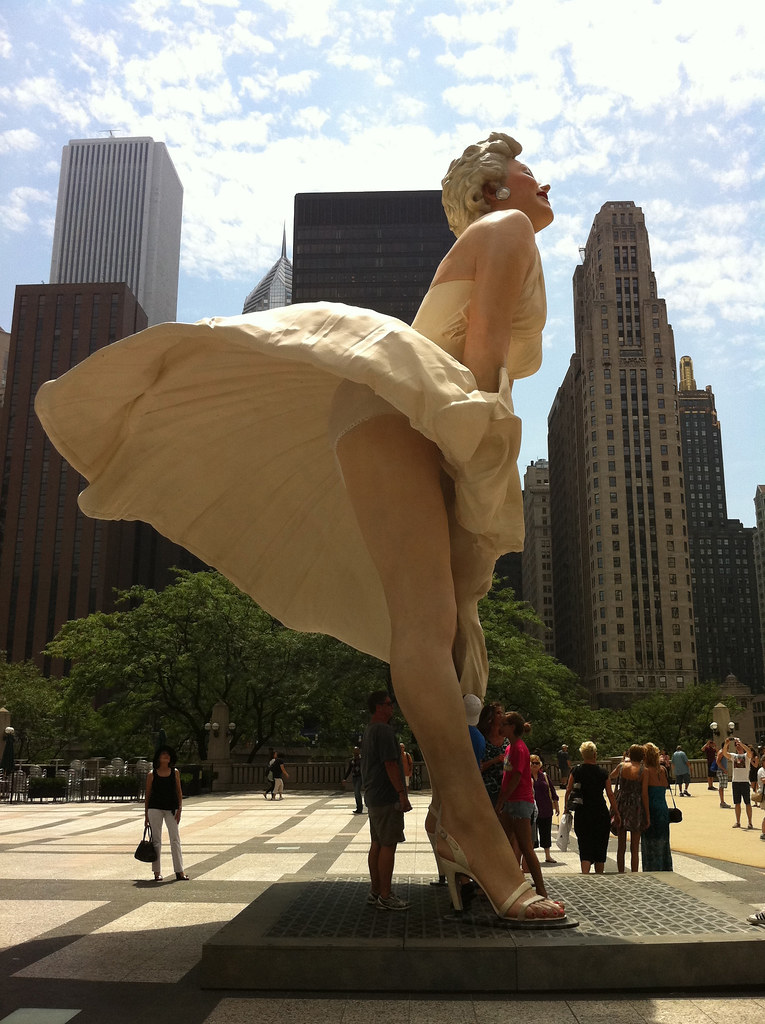
Joe Pesci. The name alone conjures a very specific, electrifying energy. From the explosive rage of “Goodfellas'” Tommy DeVito, earning him a coveted Academy Award, to the memorable turn as the tough-talking lawyer Vincent LaGuardia Gambini in “My Cousin Vinny,” and even the unforgettable conman Leo Getz in the “Lethal Weapon” franchise, Pesci carved out an indelible niche in cinematic history. He’s the kind of actor whose presence, no matter how brief, could steal a scene and elevate an entire film. His unique blend of volatile intensity and surprising comedic timing made him a household name, particularly for fans of old-school films and classic comics.
Yet, for over two decades, the powerful, unmistakable voice of Joe Pesci has largely been absent from our screens, a near-total vanishing act that has left many fans wondering: what happened? Why did this titan of character acting, renowned for his uniquely challenging and often volatile roles, simply step away from the very industry he so brilliantly commanded? The questions linger, fuelling curiosity about the true motivations behind such a definitive retreat from the spotlight, particularly given his enduring talent and the high regard in which he is held by peers and audiences alike.
This isn’t just about an actor fading away; it’s about a deliberate, conscious choice that reshaped the trajectory of a singular talent. We’re not talking about a lack of offers, but a carefully curated disengagement driven by a confluence of personal passions, professional principles, and the quiet pursuit of a different kind of life. Let’s peel back the layers and explore the multifaceted reasons why we so rarely hear about Joe Pesci anymore, delving deep into the decisions and circumstances that led to his enigmatic absence from mainstream Hollywood.

1. His Deliberate Retirement from Acting in 1999
At the turn of the millennium, precisely in 1999, Joe Pesci made a decisive choice that would largely define his subsequent public profile: he officially retired from acting. This wasn’t a slow fade but a declared departure, announced after appearances in films like “Gone Fishing” and “Lethal Weapon 4.” For an actor of his stature, with a resume brimming with iconic, Oscar-winning performances, this decision was both bold and perplexing to many who admired his craft. It signaled a clear intention to disengage from the relentless demands of Hollywood, declaring that his priorities had fundamentally shifted away from the silver screen, seeking a different kind of fulfillment.
His retirement was not an act of fleeting whimsy but a profound desire to pivot towards a life that offered different fulfillments. The context explicitly states that Pesci “quit acting in 1999 so that he could concentrate on his first love, music.” This isn’t merely a casual hobby; it represents a primary, deeply ingrained passion that had been sidelined for the bulk of his acting career, a passion often overshadowed by rigorous film schedules. The allure of the cinematic world, while bringing immense success and acclaim, had seemingly eclipsed an equally significant part of his identity, one he was now determined to reclaim without compromise. This shift wasn’t about escaping a bad situation but consciously embracing a long-held dream.
The implication of such a clear-cut retirement is that any subsequent appearances would be exceptions, carefully considered deviations from his chosen path, rather than a full return to the grind. Indeed, since 1999, his on-screen presence has been sparse and notably selective, almost as if each role had to be wrestled from his determined hands. He’s made only a handful of appearances, including a cameo in “The Good Shepherd,” a role in the romantic comedy “Love Ranch” with Helen Mirren, and “A Warrior’s Trail.” These are not the actions of an actor actively seeking work, but rather those of someone cautiously dipping his toes back in for specific, compelling reasons.
This foundational decision to retire remains the bedrock of his infrequent public profile. It’s crucial to understand that his absence isn’t due to a lack of opportunities or fading talent, but a deeply personal re-prioritization. His career prior to 1999 was marked by incredible momentum and acclaimed performances. To walk away from that level of success speaks volumes about the conviction behind his decision, establishing a pattern of selective engagement that continues to this day and making his returns, like “The Irishman,” all the more remarkable for their rarity.
Read more about: Navigating Your Golden Years: 12 Sports Cars Retirees Might Want to Reconsider for a Stress-Free Ride

2. A Deep-Seated Passion for Music
While the world knew Joe Pesci primarily as a formidable actor, the context reveals a parallel, equally vibrant passion that predates much of his cinematic fame: music. This wasn’t a newfound interest upon retirement, but a lifelong pursuit actively cultivated from a young age. “Pesci is a renowned singer and guitar player,” the information notes, highlighting that “famously Pesci was replaced by Jimi Hendrix in Joey Dee and the Starlitters.” This astonishing anecdote alone speaks volumes about his musical bona fides, placing him in the orbit of legendary musicians even before his acting career truly took off, establishing his credentials as a serious artist in his own right.
His dedication to music isn’t just historical; it continued well into his acting years and became a central focus post-retirement. In 1968, he released his album, “Little Joe Sure Can Sing!” under the name Joe Ritchie, showcasing his talents early on. This creative outlet was put on hold for three decades as his acting career soared, bringing him global recognition and accolades. However, the flame never extinguished, waiting for the opportune moment to reignite. His acting success, in a way, afforded him the luxury to return to this first love on his own terms and without financial pressure.
Upon his retirement, he rekindled this “first love” with vigor. The release of “Vincent Laguardia Gambini Sings Just for You” in 2002 was particularly noteworthy, an album directly inspired by his iconic “My Cousin Vinny” character, featuring an eclectic mix including “Rap tunes.” This project demonstrated his playful side and his willingness to experiment musically, extending his acting persona into his musical endeavors. It was a clear signal that he wasn’t just dabbling but actively exploring and producing new work, proving that his musical career was far from a mere post-retirement hobby.
This commitment to music extends beyond solo projects, showcasing his collaborative spirit within the musical world. In 2003, Pesci lent his vocals under the pseudonym Joey Doggs to jazz musician Joey DeFrancesco’s album, “Falling in Love Again,” demonstrating his versatility and continued engagement with diverse musical forms. Furthermore, his latest album, “Still Singing,” was released shortly after “The Irishman” in 2019, further cementing his identity as a musician first and foremost. This consistent output across decades underscores that his musical endeavors are not just a pastime but a profound vocational calling, providing a powerful explanation for his reduced acting presence and his pursuit of artistic satisfaction outside of film.
Read more about: Why the Trail Went Cold: Tracing the Retreat of Country Firebrand Gretchen Wilson from the Limelight

3. An Unwavering Pickiness for Quality Roles
Joe Pesci was never one to chase fame or roles for their own sake; his career was marked by a discerning eye for quality, a trait that became even more pronounced as he matured and achieved significant acclaim. As early as 1992, Pesci articulated this fundamental principle in a New York Times interview, stating, “I love to star in movies, but I want to have good roles. It doesn’t help to get starring roles in something that’s no good. I mean, that will just kill you.” This isn’t just a preference; it’s a deep-seated conviction that accepting inferior roles could actively harm his artistic spirit and legacy.
This pickiness wasn’t an empty boast; it manifested directly in his career choices, particularly in the later stages of his initial run in Hollywood. The context notes that “after 1995’s Casino, he did fewer movies, and the roles he was offered weren’t as good as his earlier work.” He openly questioned the merit of projects with titles like “How many heads fit in a duffel bag?” or “A fisherman?” These weren’t the complex, nuanced characters that allowed him to showcase his exceptional range, but rather roles he felt were beneath his capabilities or lacked artistic integrity, failing to ignite his creative fire. His willingness to turn down work, even if it meant less visibility, speaks volumes about his commitment to quality.
The anecdote about his nomination for “Worst Supporting Actor” for his continued portrayal of Leo Getz in 1998’s “Lethal Weapon 4” might have served as a stark reminder of the perils of accepting roles that don’t challenge or inspire, or perhaps had grown stale. While the “Lethal Weapon” franchise was commercially successful, the quality of the individual roles, at least in Pesci’s estimation, had diminished to a point where critics were taking notice negatively. This, combined with his earlier stated philosophy, explains why he wouldn’t simply churn out performances for the sake of it, recognizing the potential for creative stagnation.
His retirement, therefore, was also a protective measure, safeguarding his artistic integrity from roles he deemed “no good” or creatively unfulfilling. He wasn’t content to simply collect a paycheck for roles that didn’t excite him or challenge his abilities. This uncompromising stance on quality is a primary driver behind his retreat from the mainstream film industry, reinforcing why he became so selective and why his rare returns to acting are almost always for projects of immense artistic merit, often with trusted collaborators like Martin Scorsese and Robert De Niro, projects that truly live up to his exacting standards.

4. The Physical Toll of Demanding Performances
The raw intensity Joe Pesci brought to his most iconic roles was not without a significant personal cost, particularly in terms of physical well-being. The context reveals a startling and telling detail about the hazards he faced on set: “Joe Pesci cracked a rib during his fight with Robert De Niro in the motion picture Raging Bull.” This wasn’t an isolated incident, a one-off accident in a particularly brutal film; a staggering “15 years later, he cracked the same rib in the Martin Scorsese film Casino.” To suffer such a painful injury once is unfortunate; to reinjure the exact same area a decade and a half later underscores the extreme physical demands he consistently placed on himself for his art, demonstrating a level of dedication that verged on self-sacrifice. These were not minor scrapes but serious, debilitating injuries requiring significant recovery time.
Pesci himself articulated the stark trade-off between acclaimed performances and personal pain with characteristic bluntness. At an American Film Institute tribute to Martin Scorsese in 1997, he famously joked, “Excellent movies… mean damaged ribs.” He then contrasted this with films he considered less artistically ambitious, noting that “The Super and Jimmy Hollywood [that] kept me safe,” implying that less demanding films at least spared him bodily harm. This humorous observation masks a deeper, more profound truth: the immersive, often violent nature of his most celebrated roles, particularly those under Scorsese’s direction, required a level of physical commitment that few actors are willing or able to sustain, let alone endure repeatedly over a lifetime.
This cumulative physical toll became an undeniable factor in his reluctance to accept new roles. When Robert De Niro and Martin Scorsese pursued Pesci relentlessly for “The Irishman,” a project that promised to be another demanding, character-driven epic, his initial and persistent refusal was entirely understandable. Scorsese himself commented on Pesci’s reticence, noting the deeper reasons behind his prolonged “no.” He stated, “When Netflix got into the picture — because then we had the backing. It’s not even about the money or about being compensated and appreciated for your value. It’s about the physicality of [making a film] where nobody’s giving you anything. At a certain age and physicality for the actors, it may not be worth it.” This candid admission from Scorsese directly links Pesci’s resistance to the physical demands of filmmaking, acknowledging that the sheer exertion might simply be too much to bear.
After decades of embodying volatile, aggressive, and often physically intense characters, from the boxing ring in “Raging Bull” to the brutal underworld of “Casino,” the toll on his body, including those twice-cracked ribs, became a tangible and justifiable factor in his decision to largely remain off-screen. It suggests a pragmatic assessment of what his body could endure versus the perceived artistic return. For an actor who gives so much of himself physically, the eventual need to protect his body from further injury naturally leads to a reduced and highly selective engagement, making physical preservation a key reason for his rare appearances.
Read more about: Melissa McCarthy’s Jaw-Dropping Journey: Unveiling the 75-Pound Weight Loss Story That’s Inspiring Millions!

5. Reluctance to Engage in Undesirable Projects
Beyond simply seeking “good roles,” Pesci actively avoided projects he deemed uninspiring, poorly conceived, or not worth his considerable time and effort. This proactive avoidance of “undesirable projects” is a clear indicator of his changed priorities and his determination not to dilute his esteemed legacy with subpar work. A prime example of this steadfastness is his protracted negotiation for Martin Scorsese’s highly anticipated “The Irishman.” Deadline reported in 2017 that Pesci had told Robert De Niro and Martin Scorsese “No” on “The Irishman” an astonishing “around 50 times before finally accepting.” This wasn’t mere coyness; it was a deeply ingrained resistance to returning to work unless every single condition, both artistic and practical, was met to his exact and uncompromising standards.
His previous, ill-fated experience with “Gotti” further solidifies this stance, illustrating the professional headaches he was eager to avoid. Pesci “had planned to come out of retirement in 2013 for a role in Kevin Connolly’s panned ‘Gotti’ movie,” a project that ultimately garnered widespread critical derision. He even went so far as to gain “30 pounds for the role” of Angelo Ruggiero, demonstrating his commitment once he signed on. However, when the project failed to materialize as promised, or perhaps changed in ways he found unacceptable, Pesci “later ended up suing the filmmakers,” leading to a significant out-of-court settlement of $3 million. This incident underscores his expectation of professionalism, stability, and adherence to agreements.
Another telling instance of his selectivity, indicative of his general disinterest in obligatory public engagements, occurred in 2015 when he “opted not to appear at any of the events celebrating the 25th anniversary of ‘Goodfellas,’ the movie that gave the New Jersey-native his only Oscar.” For many actors, such a milestone anniversary for an iconic, award-winning film would be an irresistible opportunity for celebration and public recognition. Pesci’s conspicuous absence indicates a distinct lack of interest in public fanfare or revisiting past glories unless he genuinely feels compelled by a deeper personal or artistic motivation, highlighting a profound shift in priorities away from the ceremonial aspects of Hollywood.
Similarly, he “turned down a role in HBO’s now-canceled racehorse show ‘Luck’” in 2012, simply stating to Empire Magazine that he wasn’t “looking for a job.” This blunt, straightforward refusal encapsulates his post-retirement philosophy: he doesn’t need the work, and he won’t take it just to fill his schedule or bank account unless the project truly resonates. These examples paint a consistent picture of an actor who is exceptionally choosy, willing to say “no” repeatedly, and whose bar for engagement is exceedingly high. This unwavering commitment to only pursuing projects he finds genuinely worthwhile significantly contributes to his infrequent appearances.
Read more about: The Indelible Reign of Prince: A Forbes Retrospective on the Musical Genius, Financial Acumen, and Cultural Impact of an Icon

6. A Preference for Privacy Over Public Life
As Joe Pesci gracefully receded from the intense glare of Hollywood’s spotlight, a clear and pronounced preference for a more private existence emerged as a significant factor in his infrequent public appearances. This wasn’t a sudden development, but perhaps an underlying inclination that gained prominence and became actionable once the rigorous professional demands of a full-time acting career lessened. The context offers a crucial glimpse into this aspect of his personality through the observations of those who know him. Disgraced comedian Louis C.K., in a 2016 interview, described Pesci simply, yet profoundly, as a “private guy.” This concise description cuts to the core of his post-retirement demeanor, suggesting a conscious and deliberate withdrawal from the constant public eye.
This inclination towards privacy contrasts sharply with the perpetual visibility and self-promotion often associated with Hollywood stardom in the modern era. Unlike many contemporary celebrities who actively cultivate a public persona through social media or talk show appearances, Pesci appears to have enthusiastically embraced the quietude and anonymity that comes with a life away from the cameras. His extremely limited screen appearances since his 1999 retirement are not merely about selecting roles but fundamentally about safeguarding a personal sphere that he evidently values, indicating a deep-seated desire for normalcy and peace away from the incessant demands of fame.
His reluctance to participate in events like the “Goodfellas” 25th-anniversary celebration, despite its immense significance to his career and the opportunity for a public reunion with his acclaimed co-stars and director, further exemplifies this strong desire to maintain a low profile rather than bask in nostalgic acclaim. For most actors, such an event would be a natural, even obligatory, engagement. Pesci’s absence speaks volumes about his priorities, suggesting that the effort and intrusion of public events outweigh any perceived benefits of revisiting past glories.
The implication is that the very act of being a highly visible public figure, constantly scrutinized, analyzed, and expected to perform, may have become draining or simply unappealing to Pesci after decades in the industry. His choice to step back wasn’t just about pursuing music or avoiding bad roles; it was intrinsically about reclaiming a profound sense of personal space, autonomy, and quiet dignity. The “life away from the cameras” he consciously sought allowed him to cultivate a routine and environment free from the constant intrusion, expectations, and often superficial interactions that come with celebrity. This deliberate cultivation and fierce protection of privacy is a powerful explanation for why we rarely hear from him, as it represents a fundamental and enduring shift in how he chooses to live his life, far removed from the clamor of Hollywood.
Read more about: Ageless James Brolin Unveils Barbra Streisand’s Private World: A Look at Their Enduring Love and Life Off-Screen

7. The Enduring Allure of Golf and Personal Pastimes
Beyond the bright lights of film sets and the fervent energy of recording studios, Joe Pesci found solace and sustained engagement in simpler, yet profoundly fulfilling, personal pastimes. While his official retirement in 1999 allowed him to return to music, it also opened up vast stretches of time for other pursuits that had long been overshadowed by the relentless demands of Hollywood. Among these, golf stands out as a particularly cherished activity, offering a structured escape and a consistent source of mental and physical engagement away from public scrutiny.
The context reveals that Pesci was an avid golfer long before his retirement, playing “as often as he could before giving up acting.” This wasn’t merely a casual hobby but a vital component of his personal well-being, a way to “stay sane,” as he reportedly claimed to New York magazine, playing “every day” at certain points. This commitment points to more than just leisure; it suggests golf provided a necessary counterpoint to the high-stakes world of acting, a place where he could perhaps find a different kind of focus and competitive satisfaction without the emotional baggage of a dramatic role. His reported 15.9 percent disability further attests to his serious, long-term involvement in the sport.
The allure of golf for Pesci became particularly evident after his standout performance in “Raging Bull,” a film that brought him immense critical acclaim but also considerable physical hardship. Despite numerous film opportunities that arose from the success of that picture, Pesci famously “turned down many film opportunities in favor of concentrating on golf.” This choice underscores a profound re-prioritization, where the quiet rhythm of the golf course held more appeal than the clamor of a burgeoning acting career, highlighting a deeper desire for a balanced life that valued personal contentment over professional momentum.
This dedication to personal pastimes like golf is more than just a trivial detail; it’s a crucial insight into Pesci’s post-Hollywood mindset. It illustrates that his absence isn’t solely about rejecting acting, but actively embracing a life rich with alternative forms of engagement and satisfaction. His involvement in celebrity tournaments, as noted in 2015 by Entertainment Tonight, suggests that while he maintains a low profile, he isn’t entirely a recluse, but rather selectively participates in activities that align with his personal interests and social preferences, allowing him to connect in ways he finds genuinely enjoyable.
Read more about: Beyond the Fun: Turning Your Passions into Profit with Monetizable Hobbies

8. The Psychological Toll of Deep Method Acting
For an actor as profoundly immersive as Joe Pesci, the line between character and self could sometimes blur, leading to significant psychological demands that profoundly influenced his career choices. The intensity he brought to roles like Tommy DeVito in “Goodfellas” or Nicky Santoro in “Casino” required a level of emotional and psychological commitment that, while yielding iconic performances, came at a personal cost. This deep immersion in “psychological make-believe,” where actors “suppress their own identities to embody a character,” could indeed “have an impact on an actor’s mentality.”
Pesci himself offered a strikingly candid glimpse into this internal struggle during a 1992 interview with the Orange County Register. Recounting an experience on a golf course, he described a moment of disassociation: “I had forgotten who I was for a moment because I had spent so much time being someone else and so little time being myself.” This profound statement reveals the extent to which his demanding roles could eclipse his personal identity, causing a momentary disorientation where his “alter egos” – Tommy, Harry, Joe, David Ferry, or Leo Getz – felt as real, or perhaps even more dominant, than Joseph Frank Pesci himself.
Such an identity crisis, experienced “at his height” of fame and intense work, provides a compelling explanation for his eventual decision to step away from acting. If the very act of portraying characters so deeply and authentically led to a loss of self, it makes perfect sense that a dedicated artist like Pesci would seek refuge from an industry that demanded such a taxing personal sacrifice. His retirement was not just about physical safety or role quality, but fundamentally about mental and emotional preservation, a quest to reconnect with his authentic self away from the constant shape-shifting of acting.
The consistent portrayal of “dark and difficult roles,” often depicting “volatile and tough personalities,” would naturally exacerbate this psychological burden. Unlike actors who might approach their craft with more detachment, Pesci’s commitment to embodying these complex, often morally ambiguous characters required tapping into intense emotional reservoirs. This perpetual cycle of psychological transformation and intense character work ultimately weighed heavily on him, making a permanent retreat from the relentless demands of Hollywood an understandable and perhaps essential choice for his long-term well-being.
Read more about: Melissa McCarthy’s Jaw-Dropping Journey: Unveiling the 75-Pound Weight Loss Story That’s Inspiring Millions!

9. The Weight of Personal Relationships and Family Turmoil
While Joe Pesci’s professional life was characterized by intense performances and selective career choices, his personal life also navigated a complex landscape of relationships, including marriages, engagements, and even challenging family legal entanglements. These personal narratives, often played out away from the spotlight, undoubtedly shaped his desire for a private existence and influenced his broader life decisions, contributing to his absence from mainstream public view. His marital history, including three unions and separations, hints at a man who sought stability and companionship amidst the transient nature of fame.
One particularly notable and publicly documented relationship involved model and actress Angie Everhart. In 2000, Pesci dated Everhart, who was “six inches taller and 27 years younger,” a relationship that culminated in a marriage proposal seven years later. Although they separated in 2008, less than a year after their engagement, this period highlights Pesci’s continued engagement in significant personal relationships during his retirement, showcasing a life rich with experiences beyond his professional persona. These personal milestones, while often private, form part of the intricate tapestry of his post-acting existence.
Perhaps the most complex and publicly scrutinized personal narrative surrounding Pesci involved his third wife, Claudia Haro, with whom he has a daughter, Tiffany. Their marriage lasted from 1988 to 1992, and while Haro later acted in four of Pesci’s films, the aftermath of their divorce took a dramatic and unsettling turn. Haro remarried stuntman Garrett Warren, and things spiraled into legal trouble when Warren was fatally shot in 1999. Years later, Haro was implicated, and she was eventually sentenced to 12 years in prison in 2012 for hiring an assassin to kill her ex-husband.
This tumultuous chapter, which saw Pesci attending Haro’s trial and even being “searched and examined” by police due to a witness’s insistence that he had paid Haro to strike Warren, underscores the profound personal difficulties he navigated. Such intense family turmoil and legal scrutiny, even if he was ultimately cleared, could certainly reinforce an actor’s desire for a quiet, low-profile life. This intricate, often painful, personal history undoubtedly contributed to Pesci’s preference for privacy and his reluctance to engage with the public gaze, seeking to shield himself and his family from further sensationalism.
Read more about: 12 Stellar Talents Who Battled Time in M. Night Shyamalan’s Mind-Bending Film ‘Old’!

10. The Unbreakable Bonds of Collaborative Kinship
Despite his deliberate retirement and an unwavering commitment to a private life, Joe Pesci has shown a remarkable willingness to return to the screen, albeit selectively, primarily driven by the profound and enduring bonds of friendship and creative kinship with a select few collaborators. This isn’t about chasing fame or fortune, but about honoring deeply ingrained relationships, particularly with Robert De Niro and Martin Scorsese, who together formed a formidable creative triumvirate responsible for some of his most iconic performances. Their persistent overtures became the primary catalyst for his rare reappearances.
The synergy between Pesci, De Niro, and Scorsese is legendary, yielding cinematic masterpieces like “Raging Bull,” “Goodfellas,” and “Casino.” These films cemented their place in cinematic history and forged a bond that transcended professional obligations. It was this deep-seated friendship with De Niro that directly led to Pesci’s only significant post-retirement role prior to “The Irishman,” a cameo in the 2006 film “The Good Shepherd.” This instance clearly demonstrates that for Pesci, the personal connection and the appeal of working with trusted friends often outweigh any general reluctance he might have had to act.
The prolonged saga of his involvement in “The Irishman” further exemplifies this unique dynamic. Deadline reported that Pesci told De Niro and Scorsese “No” an astonishing “around 50 times before finally accepting.” This wasn’t merely a negotiation tactic but a testament to the immense pressure from his esteemed friends and the deep respect he held for their vision. Scorsese himself, along with De Niro, relentlessly pursued Pesci for years, knowing that his unique presence was indispensable to the project’s authenticity and power, highlighting the irreplaceable value they placed on his talent and their long-standing partnership.
Ultimately, it was the combination of their unwavering persistence, coupled with the necessary financial backing from Netflix to alleviate concerns about the demanding “physicality” of the role, that finally swayed Pesci. This decision wasn’t a return to active acting but a singular exception carved out of loyalty and shared artistic ambition. The “Guy Movie Hall of Fame” appearance with De Niro at the 2016 Spike TV Guys Choice Awards also speaks to their camaraderie, indicating that while Pesci avoids most public events, he is willing to engage when it means honoring his closest professional relationships. These unbreakable bonds are a critical lens through which to understand his selective returns.
Read more about: Robert Redford’s Enduring Loves: A Deep Dive into His Marriages and Family Journey

11. His Curated Post-Retirement Screen Appearances
While Joe Pesci officially retired from acting in 1999 to focus on his music, his subsequent screen appearances have been meticulously curated, each return a carefully considered deviation from his chosen path rather than a full re-entry into the industry. These infrequent roles are not merely footnotes but offer valuable insights into what still captures his interest and under what very specific circumstances he might lend his formidable talents, illustrating a highly selective approach to engaging with film and television on his own terms.
Since his 1999 declaration, Pesci’s IMDb page lists only a handful of on-screen credits, underscoring the rarity of his acting endeavors. These include a cameo in “The Good Shepherd” (2006), a role in the romantic comedy “Love Ranch” (2010) with Helen Mirren, and “A Warrior’s Trail” (2017). Each of these roles represents a specific type of engagement: a favor for a friend (De Niro in “The Good Shepherd”), a relatively low-key independent feature (“Love Ranch”), or a less prominent project like “A Warrior’s Trail.” They demonstrate a departure from the blockbuster, high-intensity roles that defined his prime.
Beyond these film roles, Pesci has also made other unique, albeit brief, forays back into the visual medium. In 2011, he appeared in a Snickers commercial, a commercial endeavor that allowed for wide reach without the demanding production schedule or deep character immersion of a feature film. Later, in 2016, he was featured in the music documentary “Jimmy Scott: Home Go Back” by Jimmy Scott. This particular appearance aligns perfectly with his renewed focus on music, allowing him to participate in a creative project that resonated with his primary post-retirement passion, further demonstrating his selective criteria for involvement.
These carefully chosen appearances paint a consistent picture of an actor who is not “looking for a job,” as he bluntly told Empire Magazine in 2012 when turning down HBO’s “Luck.” Instead, they are singular opportunities, often driven by personal connections, a casual commercial appeal, or alignment with his musical interests, rather than a desire to resume a full-fledged acting career. Each project, from the small cameo to the music documentary, serves as a testament to Pesci’s highly personal and uncompromising standards for engaging with the screen, making his presence a truly rare and noteworthy event.
12. The Quiet Dignity of a Life Lived on His Own Terms
Ultimately, the story of why we rarely hear about Joe Pesci anymore isn’t one of fading relevance or a lack of opportunities, but rather a profound testament to an individual’s unwavering commitment to living life entirely on his own terms. His retreat from Hollywood, initiated in 1999, signifies a deliberate and comprehensive re-evaluation of priorities, culminating in a life that prioritizes personal fulfillment, creative passions, and an invaluable sense of privacy over the relentless demands and public glare of celebrity. It’s a quiet dignity chosen over continued stardom.
Pesci’s journey, marked by his return to music, his discerning eye for roles, his protection against physical and psychological tolls, and his steadfast embrace of personal hobbies like golf, paints a picture of an artist who understands the true cost of his craft. He walked away from an industry he brilliantly commanded, not out of bitterness or exhaustion, but out of a clear understanding of what truly nourishes his spirit. His few, highly selective returns to the screen are not contradictions to his retirement but rather eloquent affirmations of the deep relationships and unique artistic challenges that, on rare occasions, can still compel him.
His commitment to privacy, reinforced by personal challenges and a general aversion to public fanfare, underscores a desire for normalcy that many would struggle to achieve after such a luminous career. Pesci represents a rare breed in an age of constant self-promotion: an actor who found profound satisfaction in stepping back, in cultivating a rich inner life, and in engaging with the world on his own schedule and according to his own values. He chose authenticity and personal peace over the perpetual spotlight, a choice that speaks volumes about his character.
In the end, Joe Pesci’s enigmatic absence from mainstream Hollywood is a powerful narrative about reclaiming agency and defining success on one’s own terms. He didn’t disappear; he simply shifted his stage, moving from the silver screen to the quiet rhythms of his chosen life. While fans might yearn for more of his electrifying performances, the reasons behind his infrequent appearances reveal a deeply principled individual who, having given so much to his art, chose to dedicate his later years to a life of personal satisfaction, creative freedom, and cherished anonymity. He remains, undeniably, a singular talent, living a singular life.
It’s clear that Joe Pesci’s legacy is far from over. It simply exists on a different plane now, characterized by the unwavering pursuit of personal passions and the quiet dignity of a life lived by his own exacting standards. For an actor who once famously quipped that “excellent movies… mean damaged ribs,” his current path reflects a profound understanding of what truly constitutes a life well-lived, one that honors both his extraordinary talent and his profound need for peace.”
Read more about: Alabama Unpacked: Dissecting the Deep South’s Evolving Landscape, from Moundville to Marshall Space Flight Center


